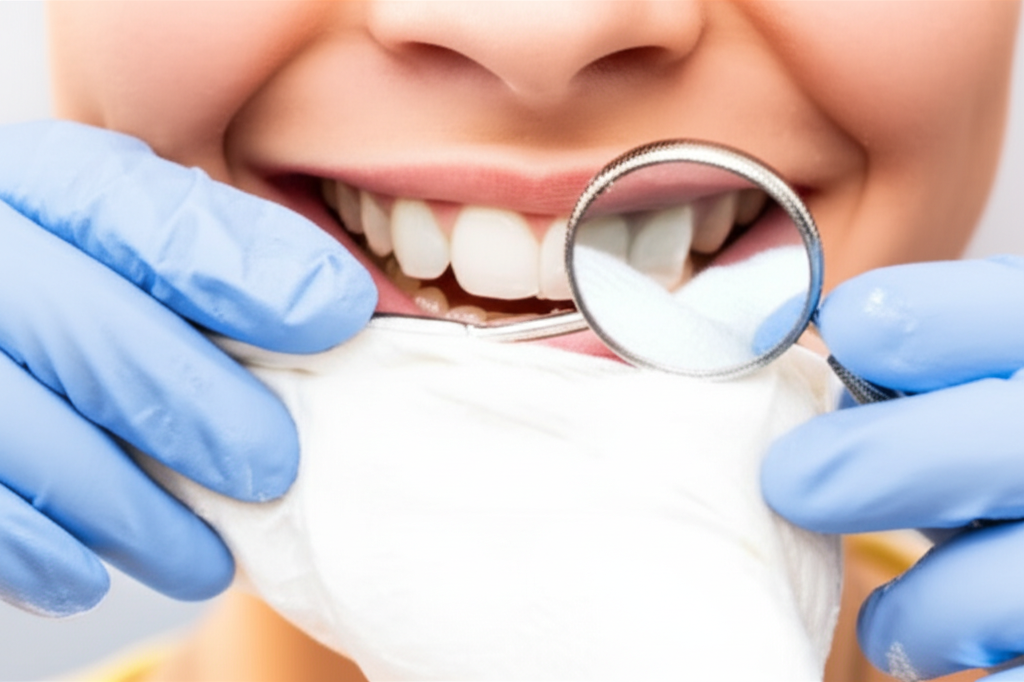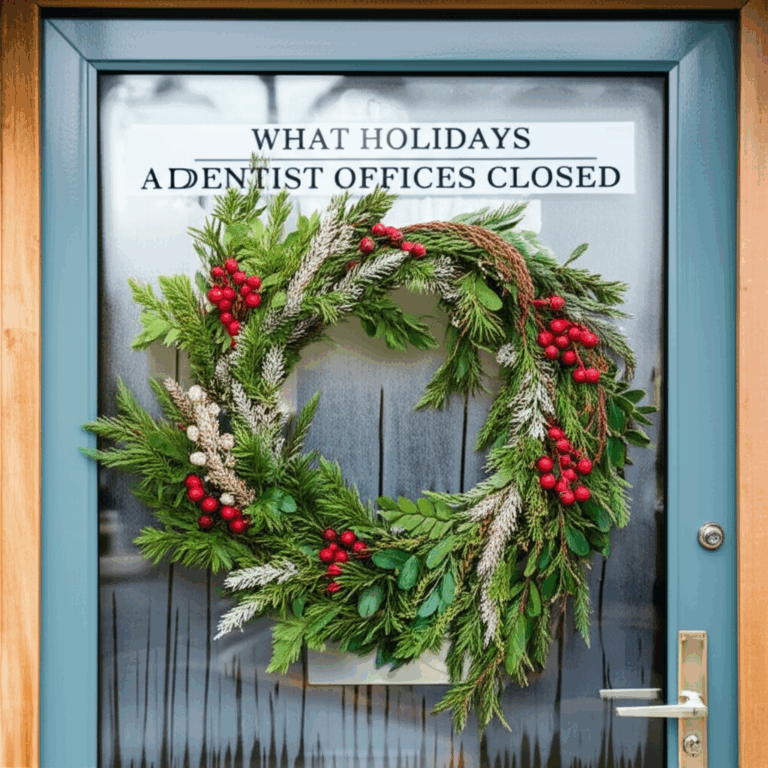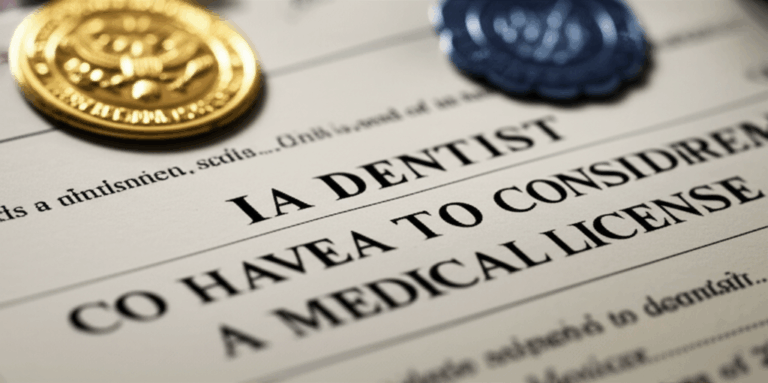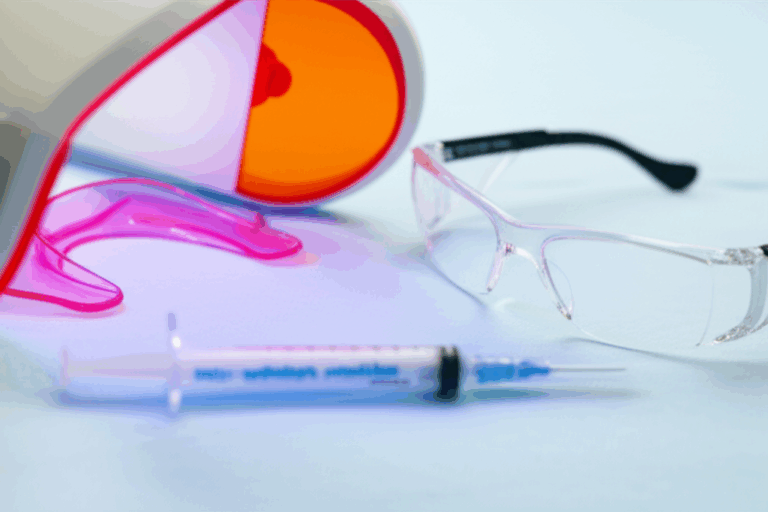
How Many Times Should You Clean Your Teeth at the Dentist?
The Easy Guide to Dental Cleanings, How Often You Need Them, and Keeping Your Mouth Healthy
That Dental Chair Question: “How Often Do I Really Need to Go for a Cleaning?”
You know the drill: you finish up at the dentist, teeth feeling smooth and shiny, and they say, “See you in six months!” Maybe you wonder, Do I really have to come in twice a year? Is everyone doing this, or is it just a habit?
If you’re thinking, “How many times should I get my teeth cleaned at the dentist?”—you aren’t alone. Lots of people are confused about this, and it’s a good question. Maybe you’ve been skipping visits, or maybe you want to stick to a schedule—either way, knowing why these cleanings matter can help.
Let’s get into it—from the real reasons for cleanings, to how often you really need to go. Here it is, nice and simple.
In This Article
- The Quick Answer: Is Twice a Year Normal?
- Why Professional Cleanings Matter
- Who Needs More Dentist Visits (And Why)
- What Actually Happens During a Cleaning?
- Why You Should Keep Up with Cleanings
- Problems From Skipping Dental Cleanings
- How to Keep Your Teeth Healthy Between Visits
- Main Points and What to Do Next
The Quick Answer: Is Twice a Year Normal?
Answering the big question first: For most adults with no big problems, dentists say you should get your teeth cleaned every six months—twice a year. This isn’t random; it comes from years of dentist experience and research.
Why every six months? Here’s why:
- Plaque and tartar don’t go away by themselves: Even if you brush well, plaque builds up and turns into tartar (hard stuff that sticks to your teeth). You need a dentist to take it off.
- You want to catch problems early: Cavities and gum disease can happen fast. Seeing the dentist every six months helps catch trouble before it gets serious (and expensive!).
- It’s better for your health: Regular teeth cleanings are linked to healthier hearts and better diabetes control—not just a nice smile.
But everyone is different. The twice-a-year rule is for most people, but you might need more or fewer visits, depending on your situation. Let’s talk about that next.
Why Professional Cleanings Matter
Imagine trying to clean your kitchen with just water and a paper towel—no soap, no scrubbing tools. Cleaning your teeth at home helps, but it just isn’t the same as a real, professional cleaning.
What’s Different About Dentist Cleanings?
- Plaque and Tartar Removal
Plaque is the sticky stuff that forms on your teeth every day. If you don’t get it off, it turns into hard tartar (kind of like limescale in a kettle). You can’t get tartar off with brushing alone—your dentist has special tools for this.
- Stopping Gum Disease
Plaque and tartar aren’t just ugly—they’re the main reason you get gum disease. This can eventually make you lose teeth. One study showed that regular cleanings cut down gum disease by up to 70% compared to not going often.
- Spotting Problems Early
Dentists can find tiny cavities, bad gums, and even signs of cancer in your mouth. If you go regularly, you fix small problems before they become big ones.
Why Six Months?
Most dentists—and groups like the American Dental Association (ADA) and NHS—chose six months because it’s long enough for things to start building up, but not so long that big trouble has time to start. Also, lots of insurance plans pay for this timing.
But some people need to go more (or sometimes less.) Let’s find out who.
Who Needs More Dentist Visits (And Why)
Think of the twice-a-year rule as the “normal,” but some people need extra trips. Here’s who:
1. People With Gum Disease (Gingivitis or Periodontitis)
- How often: Every three to four months (so, three to four times a year).
- Why: Gum disease comes back fast if you don’t keep after it. Extra cleanings help get rid of germs hiding below your gums.
- Deep Cleanings: If your dentist ever did “scaling and root planing,” they were cleaning deep under the gum. Coming back often keeps it from coming back.
2. If You Get Lots of Cavities
Some people like sweet stuff, or just have “bad luck teeth” or dry mouth. If you’ve had lots of fillings or new soft spots show up all the time, you probably need to go in more.
- Things that make you more likely to get cavities:
- Not brushing or flossing daily
- Eating lots of sugar
- Dry mouth (from meds or health stuff)
- Certain health problems, like diabetes
3. People Who Use Tobacco
Smoking or chewing tobacco is rough on your mouth. You get more tartar, stains, and higher cancer risk.
- Why go more?
- Tartar and stains build up faster
- Your gums heal slower
- Chance of mouth cancer is higher
4. People with Diabetes or Health Problems
Did you know gum problems can mess with your blood sugar, and diabetes can make gum problems worse? Diabetics and people being treated for things like cancer, or those with immune illnesses, should probably get 3-4 cleanings a year.
5. People with Braces
Braces make teeth straighter, but they also make it hard to clean around wires and brackets. More dental cleanings stop cavities and gum issues.
6. Pregnant Women
Pregnancy hormones make gums tender and bleed more. Extra cleanings can prevent problems before they start.
7. People with Bad Breath
If your breath smells all the time, it might be gum disease or hidden tartar. Regular cleanings can help get rid of it and find the cause.
8. Seniors and Kids
Older people might have gums pulling away, dry mouth, or don’t heal fast. Young kids with new teeth need checkups to spot trouble early. Kids should see the dentist by age one or when their first tooth comes in, then every six months or as the dentist says.
> Big Tip:
If any of these sound like you, listen to your dentist. Ask them how often you should come in—don’t just go by the calendar.
What Actually Happens During a Dental Cleaning?
Ever leave the dentist and wonder, “What did they just do to my teeth?” Here’s what usually happens:
1. Full Mouth Check
First, the dentist or hygienist looks at your teeth, gums, and whole mouth for any problems like cavities or gum disease. Sometimes they do X-rays (every year or two) to see under the surface.
2. Scraping Off Tartar
They use vibrating tools or hand tools to get plaque and tartar off your teeth (even below the gumline). It’s a bit like scraping barnacles off a boat.
3. Polishing
Next, your teeth are scrubbed with gritty paste. This makes them smooth, so new plaque doesn’t stick as easily.
4. Flossing
Even if you floss at home, they do it again at the dentist for a super clean.
5. Fluoride (Sometimes)
They might put fluoride gel or varnish on your teeth to help make them strong, especially if you get cavities a lot.
6. Tips Just for You
They’ll give you advice on how to brush and floss better, what toothbrush or toothpaste to use, and how to take care of your teeth.
Extra: If you have crowns, bridges, implants, or dentures, they may use different tools or cleaning stuff. You can look up a helpful crown and bridge dental laboratory for more info.
Why You Should Keep Up with Cleanings
Is it worth it? The truth is yes. Seeing your dentist on a schedule is one of the best things you can do for your whole body.
Here’s What Happens When You Keep It Up:
- Catch cavities early and keep teeth longer
Small problems get fixed fast before they get big and cost more.
- Gum disease stops
Cleanings can stop mild gum swelling before it becomes a forever problem that makes you lose teeth.
- Plaque and tartar don’t get to stay
Even the best brusher leaves stuff behind. Only your dental team can get tartar off.
- Your smile looks and smells better
Polishing makes your smile whiter and your breath fresher.
- Dentists spot big health problems early
They check for mouth cancer, infections, and jaw trouble, sometimes even sicknesses that start in the mouth.
- You can save money
It’s much cheaper to fix little problems now instead of big problems later.
Studies show that going every 6–12 months for cleanings cuts the chance of cavities by about 50%, and regular checkups for gum disease can drop flare-ups by up to 70%.
Problems From Skipping Dental Cleanings
Busy? Nervous? Thinking it doesn’t matter? Skipping cleanings can mess up your mouth.
Here’s What Can Go Wrong:
- Cavities sneak in
Hidden plaque leads to small holes that get bigger if no one finds them. Wait too long, and you might need big fillings, root canals, or even lose a tooth.
- Gum disease gets worse
If you wait too long, tartar and bacteria take over, turning sore gums into advanced gum disease—which leads to bone and tooth loss.
- Stains and bad breath grow
Tartar locks in stains and germs that cause stinky breath.
- Big health issues get missed
Dentists are often the first to find mouth cancer or signs of other sickness—sometimes before you notice anything is wrong.
- Costs go up
Fixing a small problem is always cheaper than an emergency or surgery.
Remember: Almost half of adults over 30 in the U.S. have some kind of gum disease, and one in four have teeth that are starting to rot. Many didn’t know until it was too late—because they skipped their check-ups.
How to Keep Your Teeth Healthy Between Visits
Your teeth don’t get a break—so your habits matter day in, day out. Here’s what keeps your mouth healthy:
Daily Stuff That Matters Most
- Brush two times a day with fluoride toothpaste
Spend a good two minutes each time. An electric toothbrush can help, too.
- Floss every day—really!
That’s how you clean spots your brush can’t reach, like between teeth.
- Try a mouthwash (if your dentist thinks it helps)
It can help stop germs and freshen your breath.
- Eat good foods
Cut down on sugar and sodas. Eat more cheese, milk, and crunchy fruits and veggies to help your teeth stay strong.
- Don’t use tobacco
Smoking stains teeth, messes up gums, and even causes cancer.
Tips for Special Cases
- Braces or fake teeth? Try a water flosser or special floss. Want to know more about digital dental tech? Visit a digital dental lab.
- If you have dentures, clean them every day with the right cleaner, and check with a removable denture lab if you need help.
- Grind your teeth at night? Ask your dentist about a night guard to protect your teeth.
Main Points and What to Do Next
Here’s what matters most:
- Twice-a-year cleanings fit most people, but some need more.
- If you have gum problems, diabetes, braces, smoke, or have other health issues, your dentist might want to see you more—sometimes every 3–4 months.
- Dentist cleanings do stuff brushing can’t.
- Only dentists can take off tartar, look for early problems, freshen your breath, and check for cancer.
- When you skip visits you risk cavities, gum disease, bad breath, and bigger (more expensive) problems later.
- Home care is super important, but you still need to see the dentist.
- Brush, floss, eat right, and listen if your mouth feels weird.
- Ask your dentist what schedule is best for you.
- Everyone is a little different, especially if you have health problems.
What Should You Do Now?
- Book your next cleaning if you haven’t been in a while—even if it’s been years.
- Ask your dentist or hygienist about your best schedule.
- Keep up those daily habits to help your mouth between visits.
Your mouth is the start of the rest of your body. Taking care of your teeth with regular checkups is good for your whole self.
Frequently Asked Questions (FAQs) About Teeth Cleanings
Q: Can I get my teeth cleaned too often?
A: Almost never. For most people, even cleanings every three months are safe. Dentists only say you need more cleanings if your mouth actually needs it.
Q: Does getting my teeth cleaned hurt?
A: It shouldn’t. You might feel a little scraping or some tenderness, especially if it’s been a long time or you have tender gums. Tell your dental team if you feel pain—they can help.
Q: How often do kids need cleanings?
A: Dentists say kids should visit by age one, or when the first tooth shows up. After that, every six months is best (or more often if their dentist says so).
More Reading & Helpful Resources
- china dental lab
- For help with crowns, bridges, and expert tips, check crown and bridge dental laboratory
- Curious about new dental technology? Check out a digital dental lab
If you need more info or want to see a dentist, give your local office a call—they love helping you keep your smile bright.
Remember: There’s no such thing as a dumb question about teeth. Keep asking, keep learning, and your teeth will thank you for life.








